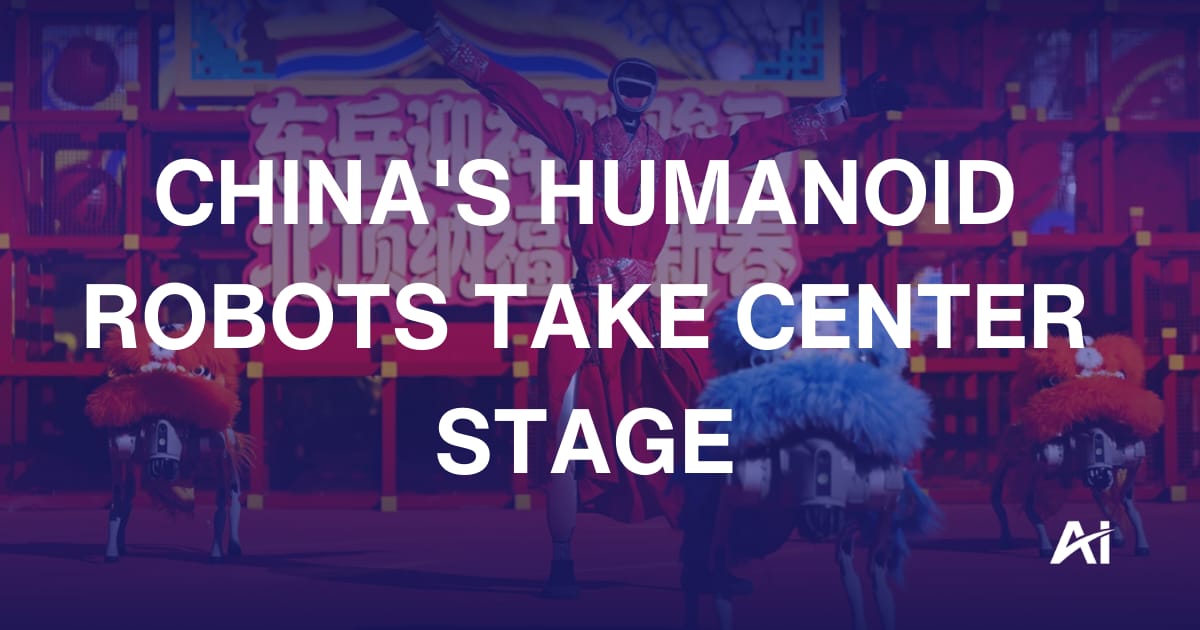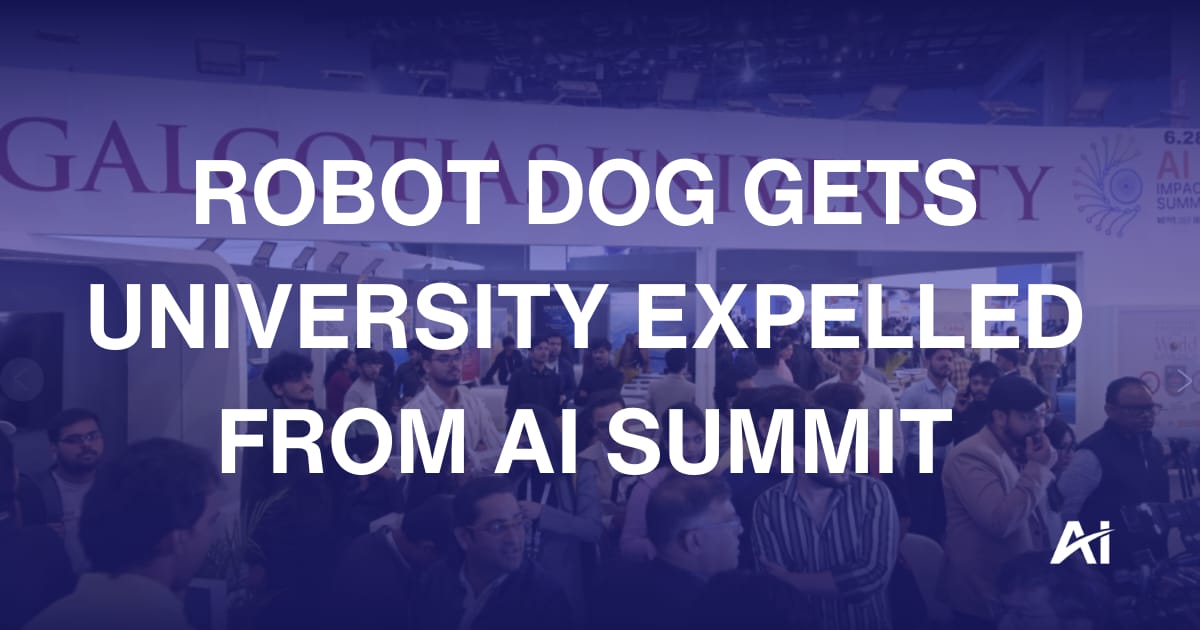
Subscribe to our free Newsletter
💌 Stay ahead with AI and receive:
✅ Access our Free Community and join 400K+ professionals learning AI
✅ 35% Discount for ChatNode
Welcome to The AI Report!
.png)

WORK WITH US • COMMUNITY • PODCASTS • SIGN UP
Friday’s AI Report
• 1. 💣 NVIDIA slams Anthropic’s US export stance
• 2. 🔏 Protect your online information with Incogni
• 3. ⚖️ Judge rules on Musk’s OpenAI lawsuit
• 4. 🧠 Meta and Google blindsided by outlier?
• 5. 🤖 Find out what AI can do for your business with Upscaile
• 6. ⚙️ Trending AI Tools
• 7. 🏗️ Practical AI Applications
• 8. 📑 Recommended Resources
Read Time: 5 minutes
‼️This week’s AI Report podcast episode, where journalist Kate Farmer reveals the risks of AI mental health apps that no one talks about, is live!
✅ Refer your friends and unlock rewards. Scroll to the bottom to find out more!


NVIDIA slams Anthropic’s US export stance
🚨 Our Report
AI chip-maker, NVIDIA, has blasted Anthropic for publicly supporting the USA’s Framework for Artificial Intelligence Diffusion (or, the AI Diffusion Rule), which imposes varying levels of AI chip export restrictions on countries across the world.
🔓 Key Points
Anthropic argued for increased export controls and enforcement to reduce smuggling tactics, claiming that China has been sneaking AI chips into the country via “prosthetic baby bumps” and “live lobster shipments.”
In response, NVIDIA scathingly suggested that “US firms should rise to the challenge, rather than tell tall tales that large, heavy, and sensitive electronics are smuggled in ‘baby bumps’ or ‘alongside live lobsters.’”
It blasted the AI export framework, saying that “China, with half of the world’s AI researchers, has highly capable AI experts at every layer of the AI stack. America cannot manipulate regulators to capture victory in AI.”
🔐 Relevance
This comes as no surprise, as NVIDIA initially slammed the framework—when it was released by the Biden Administration in January—believing it would “derail” global innovation. But there’s another reason NVIDIA violently disagrees with the proposed rules: The new export restrictions would limit the chip-maker's ability to sell AI chips to China, having previously said that restrictions could cost the company $5.5B.
AI is fueling a scammer's paradise. Protect your personal info—get it off the web now!
You’ve likely received a sketchy call, text, or email asking for $$$. It might've been easy to spot, but with deepfakes and AI, scams are getting trickier.
Scammers use your personal data, often bought legally from data brokers who sell your number, DOB, SSN, and more. Incogni scrubs your data from the web, taking on 250+ data brokers on your behalf.
Unlike others, Incogni deletes your info from all broker types, including people search sites where anyone can get your details for a few bucks.
Plus Incogni's new, most comprehensive privacy solution puts you in full control of reclaiming your personal data by going beyond our standard automated protection. Simply point us to where your data is exposed—data broker lists, people search sites, or even specific Google search results—and our privacy experts will handle the rest.
‼️AI Report readers get an exclusive 55% off all annual plans with the code AIREPORT

🚨 Our Report
A US federal judge has narrowed the scope of Elon Musk’s lawsuit against OpenAI (which accuses OpenAI of misrepresenting its intentions to remain a charity, just to secure his funding, after it announced it was transitioning into a for-profit business), but has allowed some of his fraud-related allegations to continue.
🔓 Key Points
The judge said Musk’s allegations that OpenAI had committed fraud can continue, but dismissed his accusations that OpenAI had engaged in racketeering activity and false advertising and had breached its fiduciary duty.
They also dismissed Musk’s claim that Microsoft (a key OpenAI investor) aided the fraud, but ruled that Microsoft must face allegations of interfering with OpenAI and Musk’s contract.
Musk alleges that Microsoft knew about OpenAI’s future for-profit plans and actively took steps to ‘substantially assist and encourage’ the violation of his contract with OpenAI.
🔐 Relevance
This means that the core of Musk's lawsuit, which focuses on whether OpenAI’s transition to a for-profit structure (largely to appease investors, namely Softbank) breached an implied agreement with Musk, therefore resulting in fraud, can proceed.

Earlier this week, nonprofit research institute Ai2 released a small (open-source) AI model—Olmo 21B—which reportedly beats several similarly sized models from Google, Meta, and others on key benchmarks.
For example, Olmo 21B scored higher than Google’s Gemma 31B, Meta’s Llama 3.21B, and Alibaba’s (recently released) Qwen 2.5 1.5B on benchmarks measuring arithmetic reasoning and factual accuracy.
Unlike most open-source models, Ai2 has provided the full code and data sets used to develop it, so developers can rebuild it, but has warned that it shouldn’t be used commercially, as it can produce “problematic outputs.”
Find Out What AI & Automation Can Do for Your Business
Your time is too valuable to be spent on inefficiencies.
What if AI and automation could unlock huge time and cost savings, allowing your team to focus on strategic growth?
In just 3-5 weeks, Upscaile’s AI Audit provides you with:
Actionable workflow improvements, powered by AI and automation
An AI roadmap to identify and prioritize high-value efficiency opportunities
An ROI analysis to forecast cost savings and productivity gains
Our AI audits have identified opportunities that have helped over 100 enterprises save 80,000+ hours of manual work without needing additional staff.
Curious about the reports we’ve made for others and if your business qualifies, too?


Prompt Inspiration
After typing this prompt, you will get an ad campaign outline that uses the 'Situation-Complication-Resolution' framework to encourage your ideal audience to use your product/service to overcome a challenge they’re facing.
Using the 'Situation-Complication-Resolution' framework, please write an advertising campaign outline that presents a [insert the situation] faced by [insert your ideal customer persona], discusses the [insert the complication] that arises from the situation, and presents our [insert your product/service] as the [insert the resolution] to the challenge. End with a CTA that encourages the reader to take advantage of the solution.
P.S. Use the Prompt Engineer GPT by The AI Report to 10x your prompts.

STARTUPS
Name: Tabnine
Value: $100M— $150M
Funding raised: $57.1M (Series B)
Tabnine is an AI-powered coding and software development assistant. This AI tool uses Large Language Models (LLMs) to predict the next line of code based on the previous syntax.
PODCASTS
The risks of AI mental health apps no one talks about
In this episode of The AI Report podcast, journalist Kate Farmer joins Liam to discuss the real-world risks and ethical blind spots of AI therapy apps. They do a deep dive into platforms like Wysa and Woebot and reveal a troubling gap between what these tools say they can deliver and what users actually get, especially when it comes to mental health, data privacy, and regulatory oversight.
QUICK HITS



We read your emails, comments, and poll replies daily.
Hit reply and tell us what you want more of!
Got a friend who needs to learn more about AI?
Sign them up for The AI Report here.
Until next time, Martin, Liam, and Amanda.

P.S. Unsubscribe if you don’t want us in your inbox anymore.















